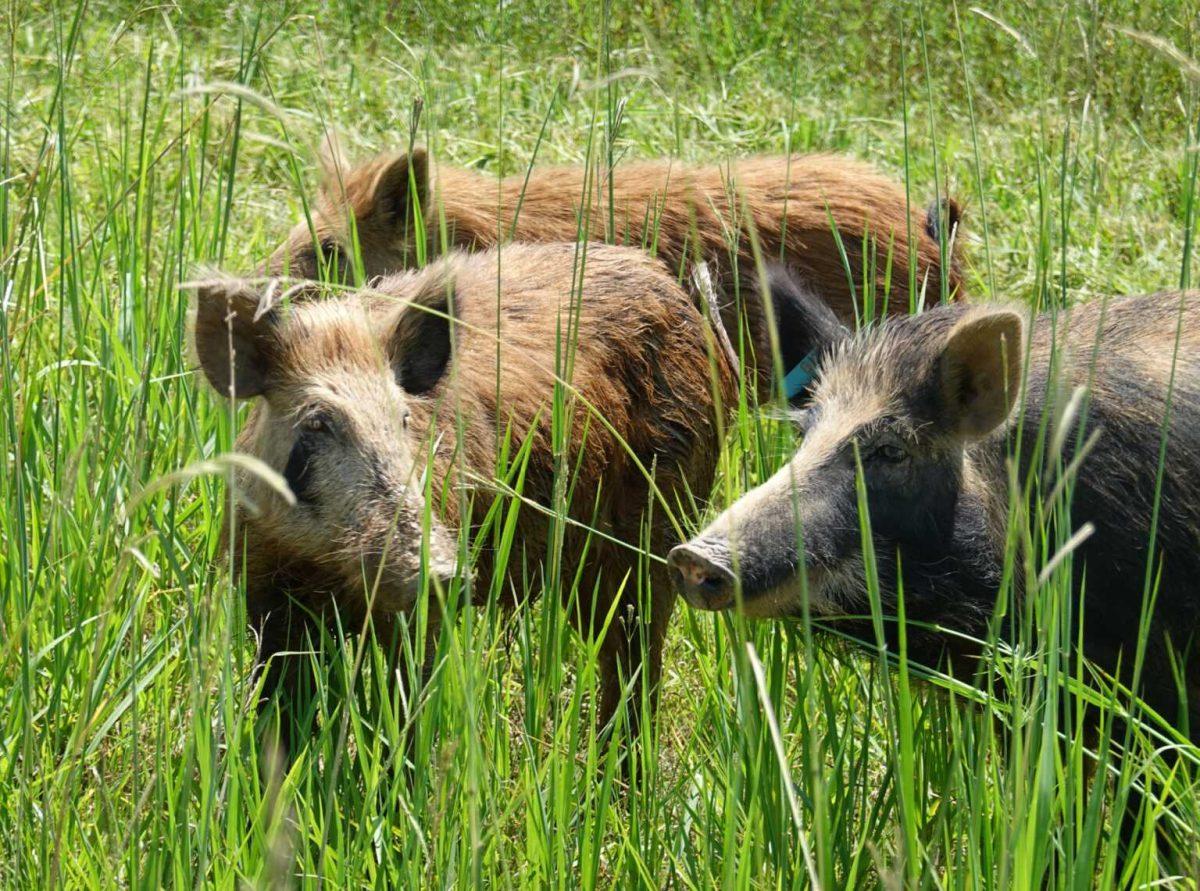You would need 10 Tiger Stadiums to seat the million wild hogs that run loose in Louisiana. They tear up garden beds, wreak havoc on crops and damage levees — but maybe not for long.
A poisonous bait developed by the LSU AgCenter and LSU Department of Chemistry was approved for a patent earlier in August, according to the AgCenter. The next step before public use is approval by the U.S. Environmental Protection Agency.
The bait might seem like an appealing snack — sodium nitrate balls with a rubbery, “gummy bear-like texture,” according to the AgCenter — but they stop swine dead in their tracks. They also glow green under a blacklight and, according to its inventors, don’t pose a harm to the environment or other wildlife.
LSU students and Baton Rouge residents might imagine it’s rare they’d run into a feral pig, but state wildlife veterinarian Jim LaCour said at a public meeting in August that he frequently gets calls for hogs in residential areas.
“The hogs are getting more mobile,” LaCour said. “They’ll go where the calories are, so they’re moving into towns and hitting garbage dumps and everything else along the way.”
The pigs multiply faster than any other large mammal on the face of the planet, and Louisiana hunters can’t keep up.
Wild hogs cost $91.1 million in damage to agricultural and timber lands each year, with two-thirds being crop losses, a 2022 study from the AgCenter found.
Glen Gentry, an animal scientist with the AgCenter and one of the inventors of the bait, said at the August task-force meeting, which focused on a solution for the “pigdemic,” that the team is still searching for the location and funding for the trials.
The other inventors are John Pojman, an LSU chemistry professor, and Baylen Thompson, a former LSU graduate student who worked with Pojman, according to the AgCenter.





